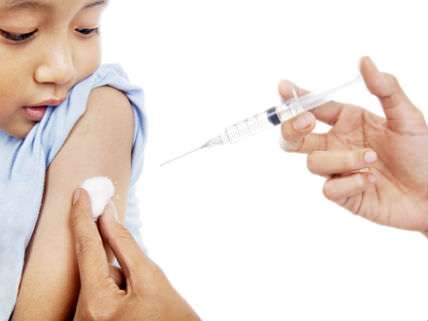HPV Vaccination Does Not Increase Promiscuity Among Adolescents
It's a vaccine against sexually transmitted cancer

On February 3, 2015, libertarian radio host Andrew Wilkow invited me to discuss the risks and benefits of vaccination. We disagreed: Mr. Wilkow is considerably more worried about the risks than is warranted by the scientific evidence. During the segment, Mr. Wilkow stated that he did not plan to have his two-year old daughter vaccinated against the human papilloma virus (HPV).
Infection with human papilloma virus is responsible for about 11,967 new cases of HPV-associated cervical cancer and for about 2,370 new cases of HPV-associated oropharyngeal cancers in women and nearly 9,356 new cases in men each year in the United States. During the radio segment, I mentioned that a male friend had recently died of HPV-associated head-and-neck cancer. I failed to mention that another male friend is being treated for that cancer now.
Mr. Wilkow argued that since the vaccine immunizes against a sexually transmitted disease that he saw no reason to have his daughter vaccinated against it. The series of three HPV injections is recommended to start after age 9, so Mr. Wilkow has time to reconsider.
Mr. Wilkow is, however, not alone in his opposition to HPV vaccination. A 2014 study in Clinical Pediatrics reported the results of a survey of parents' actions regarding HPV vaccination. The researchers found:
A significantly higher proportion of parents of girls who were non-Hispanic white, lived in households with higher incomes, and had mothers with higher education levels, delayed and/or refused vaccination.
Another of the early concerns by some opponents of HPV vaccine is that it might encourage sexual promiscuity by lessening adolescent fears of getting sexually transmitted diseases. Several studies have looked at this issue and all have found no such link. The latest study just published in the journal JAMA Internal Medicine is reassuring on that account. The researchers compared the sexually transmitted disease incidence (STI) among vaccinated and unvaccinated adolescent females. The study found:
Human papillomavirus vaccination was not associated with increases in STIs in a large cohort of females, suggesting that vaccination is unlikely to promote unsafe sexual activity.
If you could immunize your kids against breast or prostate cancer you would, wouldn't you? So why not vaccinate against these cancers?


Show Comments (55)